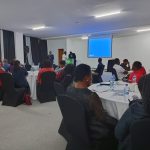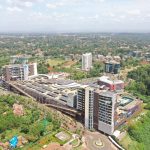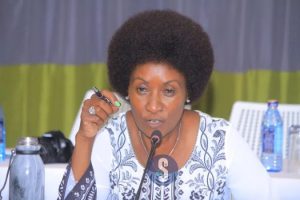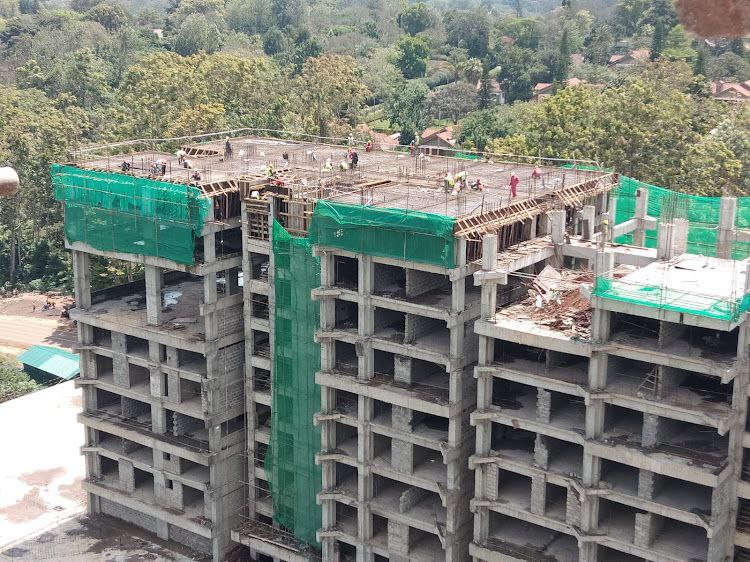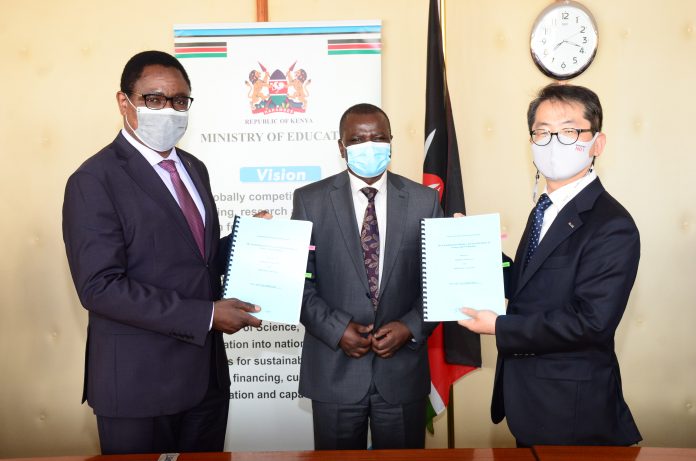
Kenya and Korean governments have signed a contract for the establishment of the Kenya Advanced Institute of Science and Technology (KAIST) to be set up at Konza Technopolis.
Principal Secretary (PS) for University Education and Research in the Ministry of Education, Amb. Simon Nabukwesi said the establishment of KAIST-Kenya is aimed at providing specialized research and training in various cutting-edge engineering technologies and advanced science disciplines to help the country move in fast-tracking modernization.
He said the Ministry is determined to nurture Kenyans from the youngest possible age to pursue careers in Science, Technology, and Innovation (STI) and develop capacities and competencies in technology management as reflected in the new competency-based curriculum being rolled out.
Speaking during the signing ceremony at his Jogoo House office, the PS said the adoption of the Korea-KAIST model will give Kenya an opportunity to benchmark with Korea but not replicate the development of the Institute in South Korea, which has enabled Korea’s economy to grow.
The initial concept paper on the KAIST development was signed in November 2013 between the National Treasury, the Ministry of Education, Science and Technology, and the Korean Exim Bank.
The Ministry of Education also brought on board other government ministries and agencies to participate in the project.
“We will want to leverage on the skilled graduates from KAIST-Kenya to make the most of the potential of Science and Technology,” Amb. Nabukwesi said, adding “this model worked in South Korea and we believe, with the right procedures and strategies, Kenya will benefit and transform the region’s narrative.”
He said the completion of the Institute will make it a masterpiece exemplifying the Centre of Excellence in science and engineering as envisioned in the second and third medium-term plans of Vision 2030.
The PS said the contractor of the project, BOMI E&C Consortium, has been given a duration of 24 months to deliver the project and urged the contractor to partner with the local sub-contractors for the purposes of effective and efficient project implementation.
Amb. Nabukwesi said the Ministry proposed the institute be located at Konza Technopolis as the Konza Technopolis Development Authority master plan provided space for the establishment of the University.
“Konza Technopolis is envisioned as a green, smart, inclusive, and vibrant African Silicon Savannah and its sustainability leads it to be a potentially ideal place for an advanced science and technology institution,” he added.
He said based on a Public-Private Partnership approach, Konza Technopolis is supposed to promote close collaboration with private companies, especially Information, Communication, and Technology firms.
Suicides at the Institute
Anyways, moving on, in 2019, a distraught parent wrote to a blogger who shared the following about KAIST.
Hello,
First of all, kindly keep my identity confidential because I might lose my job if anyone finds out that it is I who have leaked this document.
I work for the Kenyan embassy in Seoul South Korea and over the last 4 years I have noticed a very worrying set of events.
As you know, Kenya is currently developing a technopolis in Konza and using the Korean model under the Korean Advanced Institute of Science and Technology (KAIST) to develop it.
However, there have been strange events that have happened at the insitutitions that involved Kenyans that needs to be scrutinized.
Over the last 3 years, the Kenyan embassy in Seoul has handled the suicide of 3 Kenyans all at KAIST. The most recent of these was last weekend when a student studying nuclear engineering tried to kill himself by taking medicine overdose.
Instead of launching an inquiry into the reason why so many Kenyans were killing themselves at this institution, the Embassy with the help of some of the people involved in developing Konza have covered it up.
A Mrs. Caroline Kariuki, who is a director of The Konza Technopolis Development Authority (Phone number 0733514541) and email ([email protected]) has been involved in the cover-up.
Word around the embassy is that because KAIST wants to preserve its name, it has spent several millions of dollars as compensation but none of this money has reached the families of those involved.
In a typical fashion, President Uhuru Kenyatta has ignored the plight of the students studying abroad, has teamed up with a foreign government to collude and benefit off the death of students.
It looks like the Chinese and Koreans are killing our people but all that Uhuru’s regime cares about is bribes and stupid projects.
Sincerely,
Concerned parent,

